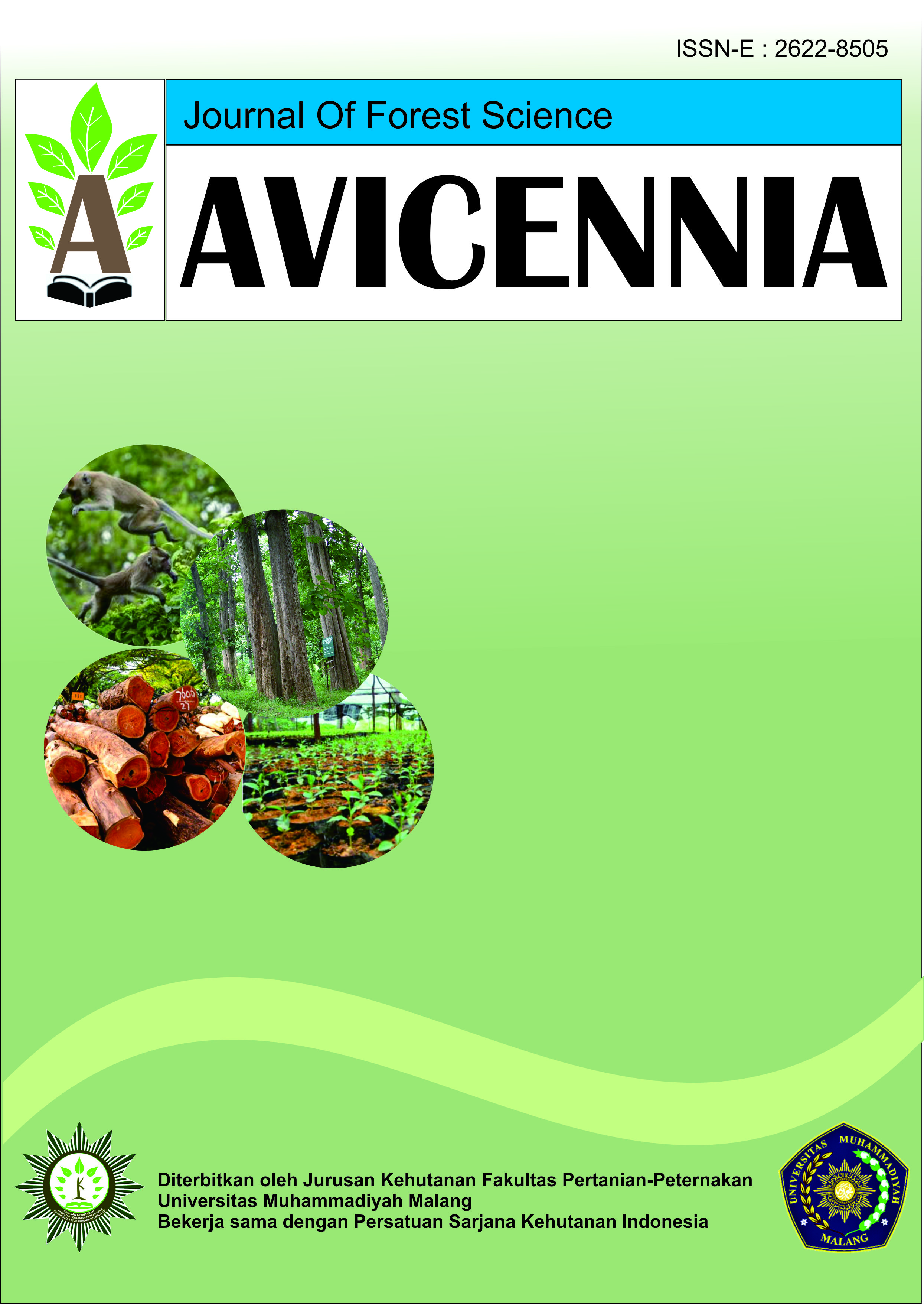Pengembangan Desa Wisata Edelweiss di Desa Wonokitri Kecamatan Tosari Kabupaten Pasuruan (Resort PTN Gunung Penanjakan Taman Nasional Bromo Tengger Semeru)
DOI:
https://doi.org/10.22219/avicennia.v2i1.8369Keywords:
Village, Sightseeing, SWOT, StrategyAbstract
Edelweiss for the tenggerese is the sacred plant, when the Edelweiss became extinct then it will affect the cultural customs of tenggerese. To cope with the extinction of the Edelweiss TNBTS party empower indigenous peoples by creating a tourist village of Edelweiss to maintain continuity, Edelweiss and used to meet the needs of the indigenous. Edelweiss as indigenous because needs as a form of devotion to the deities match the trust community Perched on the Wonokitri. This research aims at 1) to determine the strategy of the development of Village Tourism Edelweiss, 2) to find out the participation of the community. The method used a qualitative descriptive analysis is used to find out the participation of the community. The SWOT analysis is used to determine the development strategy of the tourist village of Edelweiss and continued with the analysis of the SWOT matrix. Research results indicate that the development is done Developing Tourism towards Community Based Tourism; utilization and optimization of tourist attractions with the tourist destination with the elements of education, conservation, culture and economic activity of the community; build and improve the means and infrastructure maintenance tourism is necessary; and increase the promotion and development of better program to attract tourists; as well as conducting training to foster community empowerment and raising public awareness about the management of the tourist village. Participation form community ± 20 persons became a member of the Edelweiss group of farmers manage tourism village of Edelweiss and society did not enter the participating farmers group planted in front of the Edelweiss home and along the way as well as just promoting tourism.Downloads
References
Andajani, E., Widjaja, F. N., & Prihatiningrum, A. E. 2017. Pengembangan Potensi Desa Wisata melalui Analisa SWOT Di Kecamatan Kalitidu Bojonegoro. Seminar Nasional dan Gelar Produk 2, 909–915. Arikunto, S. 2002. Metodologi Penelitian Suatu Pendekatan Proposal. Jakarta: PT. Rineka Cipta. Devy, H. A., & Soemanto, R. B. 2017. Pengembangan Obyek Dan Daya Tarik Wisata Alam Sebagai Daerah Tujuan Wisata Di Kabupaten Karanganyar. Jurnal Sosiologi DILEMA, Vol. 32, No. 1 Tahun 2017, 32(1), 34–44. Hadi, A. 2013. Konsep Analisis SWOT dalam Peningkatan Mutu Lembaga Madrasah. Jurnal Ilmiah DIDAKTIKA, 14(1), 143–158. Hakim, L. 2017. Partisipasi Masyarakat dalam Pembangunan Desa Sukamerta Kecamatan Rawamerta Kabupaten Karawang. Jurnal Politikom Indosiana, 2(2), 43. Manteiro, M. C. B. 2016. Model Pengembangan Desa Wisata Berbasis Kearifan Lokal Sebagai Strategi Pengentasan Kemiskinan Di Kabupaten Rote Ndao Nusa Tenggara Timur. Jurnal Bisnis dan Manajemen, 2(2), 93–101. Mujanah, S., Ratnawati, T., & Andayani, S. 2016. Strategi Pengembangan Desa Wisata Di Kawasan Hinterland Gunung Bromo Jawa Timur. Jurnal Hasil Penelitian LPPM UNTAG Surabaya Fakultas Ekonomi Universitas 17 Agustus 1945 Surabaya, 01(01), 33–52. Nugroho, I., & Negara, P. D. 2015. Pengembangan Desa Melalui Ekowisata. (R. N. Hamidawati, Ed.). Surakarta: PT Era Adicitra Intermedia. Primanita, D., Antariksa, A., & Wardani, D. K. 2011. Kearifan Lokal Masyarakat Suku Tengger dalam Pemanfaatan Ruang dan Upaya Pemeliharaan Lingkungan (Studi Kasus Desa Wonokitri, Kecamatan Tosari, Kabupaten Pasuruan). Jurusan Perencanaan Wilayah dan Kota Fakultas Teknik Universitas Brawijaya Malang. Rangkuti, F. 2004. Analisis SWOT Teknik Membedah Kasus Bisnis. Jakarta: PT. Gramedia. Sudarmaji, I., & Hasan, W. 2017. Strategi Pengembangan Keterkaitan Kebun Inti Plasma dengan Kapasitas Pabrik Kelapa Sawit pada Perkebunan PT. Kurnia Luwuk Sejati Banggai Sulawesi Tengah. Jurnal Galung Tropika, 6(1), 33–41. Tamara, A. 2016. Implementasi Analisis Swot dalam Strategi Pemasaran Produk Mandiri Tabungan Bisnis. Jurnal Riset Bisnis dan Manajemen, 4(3), 395–406.
Downloads
Published
Issue
Section
License
Authors who publish with this journal agree to the following terms:
- Authors retain copyright and grant the journal right of first publication with the work simultaneously licensed under a Creative Commons Attribution License that allows others to share the work with an acknowledgement of the work's authorship and initial publication in this journal.
- Authors are able to enter into separate, additional contractual arrangements for the non-exclusive distribution of the journal's published version of the work (e.g., post it to an institutional repository or publish it in a book), with an acknowledgement of its initial publication in this journal.
- Authors are permitted and encouraged to post their work online (e.g., in institutional repositories or on their website) prior to and during the submission process, as it can lead to productive exchanges, as well as earlier and greater citation of published work (See The Effect of Open Access).











